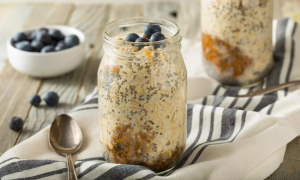Solution For Your Period To Come Faster, Safely And Effectively
The menstrual cycle is a natural process that women experience every month. The average menstrual cycle is 28 days long, but it can vary from woman to woman. The menstrual cycle is controlled by hormones, and there are a few things you can do to try to make your period come faster.
There are a few things you can try to make your period come faster, but there is no guaranteed method. Here are some of the most common methods:
Hormonal birth control: This is the most reliable way to make your period come faster. Hormonal birth control works by preventing ovulation, which is the release of an egg from the ovary. If an egg is not released, the lining of the uterus will not build up and there will be no period. There are two main types of hormonal birth control: oral contraceptives (the pill) and hormonal intrauterine devices (IUDs). Oral contraceptives are taken by mouth once a day. IUDs are small devices that are inserted into the uterus by a doctor. They can last for up to five years.
Natural remedies: There are a number of natural remedies that are said to help make your period come faster. However, there is little scientific evidence to support these claims. Some of the most common natural remedies include:
- Vitamin C: Vitamin C is said to help regulate hormones and may help make your period come faster.
- Emmenagogues: Emmenagogues are herbs or spices that are said to stimulate menstrual bleeding.
- Papaya and pineapple: Papaya and pineapple are said to contain enzymes that may help break down the lining of the uterus and make your period come faster.
- Stress management: Stress can delay your period. If you are feeling stressed, try relaxation techniques such as yoga or meditation.
- Exercise: Exercise can help regulate hormones and may help make your period come faster. However, it is important to avoid excessive exercise, as this can actually delay your period.
- Orgasm: Orgasm is said to help contract the uterus and may help make your period come faster.
Other methods: Some other methods that have been suggested to make your period come faster include:
- Taking a hot bath: This can help relax the muscles in your uterus and may help your period start.
- Eating ginger: Ginger is said to have anti-inflammatory properties that may help reduce menstrual cramps and make your period start.
- Drinking parsley tea: Parsley tea is said to have diuretic properties that may help flush out excess fluids and make your period start.
Why Want To Let Your Period Come Faster
There are a few reasons why someone might want to make their period come faster. Some of the most common reasons include:
- To avoid missing an event or activity. For example, if you are going on a camping trip or attending an important event, you may want to make sure that your period is over before you go.
- To reduce discomfort or pain. Periods can be uncomfortable and painful for some people. If you are experiencing severe cramps or other symptoms, making your period come faster may help reduce your discomfort.
- To plan for your period. If you know when your period is going to start, you can plan accordingly and avoid any surprises. This can be especially helpful if you are trying to avoid staining your clothes or having to use public restrooms.
It is important to note that there is no guaranteed way to make your period come faster. Any method that you try should be discussed with your doctor first, to make sure that it is safe for you.
What To Do If Periods Are Not Coming?
If your periods are not coming, it is important to see a doctor to determine the cause. There are many possible causes of missed periods, including:
Pregnancy: If you are sexually active, the most likely cause of a missed period is pregnancy. It is important to take a pregnancy test as soon as you miss your period to rule out pregnancy.
Stress: Stress can disrupt your hormones and cause you to miss your period. If you are feeling stressed, try relaxation techniques such as yoga or meditation.
Weight loss or gain: Excessive weight loss or gain can also disrupt your hormones and cause you to miss your period. If you have recently lost or gained a significant amount of weight, talk to your doctor.
Polycystic ovary syndrome (PCOS): PCOS is a common hormonal disorder that can cause missed periods, irregular periods, and other symptoms. If you have PCOS, your doctor may prescribe medication to regulate your hormones.
Perimenopause: Perimenopause is the transition to menopause. During perimenopause, your hormones can fluctuate and cause you to miss your period.
Certain medications: Some medications can cause missed periods. If you are taking any new medications, talk to your doctor to see if they could be causing your missed period.
Underlying medical conditions: Certain medical conditions, such as thyroid disorders or pituitary gland disorders, can also cause missed periods.
If you are concerned about your missed periods, it is important to see a doctor. They can help you determine the cause of your missed periods and recommend the best treatment for you.
What Are Signs That Your Period Is Coming Tomorrow?
Here are some signs that your period is coming tomorrow:
Mood swings: You may experience mood swings or feel more emotional than usual. This is due to changes in hormone levels.
Cramps: You may experience cramps or pain in your lower abdomen or back. This is due to the uterus contracting to shed its lining.
Bloating: You may feel bloated or swollen due to water retention. This is also due to changes in hormone levels.
Breakouts: You may experience breakouts due to increased oil production. This is also due to changes in hormone levels.
Fatigue: You may feel more tired than usual. This is due to the body’s need to rest and prepare for menstruation.
Spotting: You may experience spotting, which is light bleeding or blood-tinged discharge. This can be a sign that your period is about to start.
Headaches: You may experience headaches. This is due to changes in hormone levels and prostaglandins, which are chemicals that cause the uterus to contract.
Increased appetite: You may feel more hungry than usual. This is due to the body’s need for more energy to prepare for menstruation.
Changes in bowel habits: You may experience constipation or diarrhea. This is due to changes in hormone levels and prostaglandins.
Sore breasts: You may experience sore breasts. This is due to changes in hormone levels.






